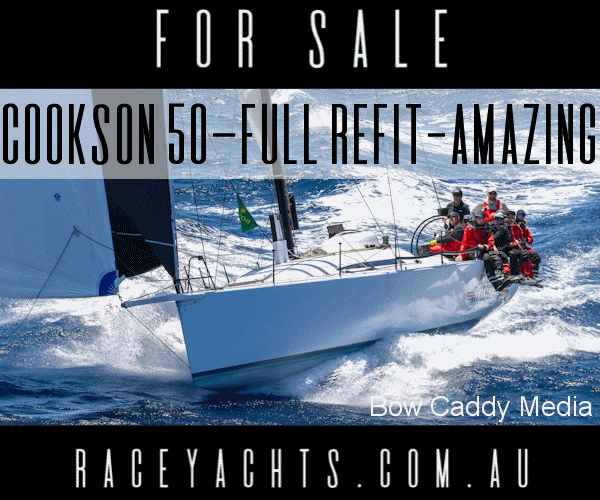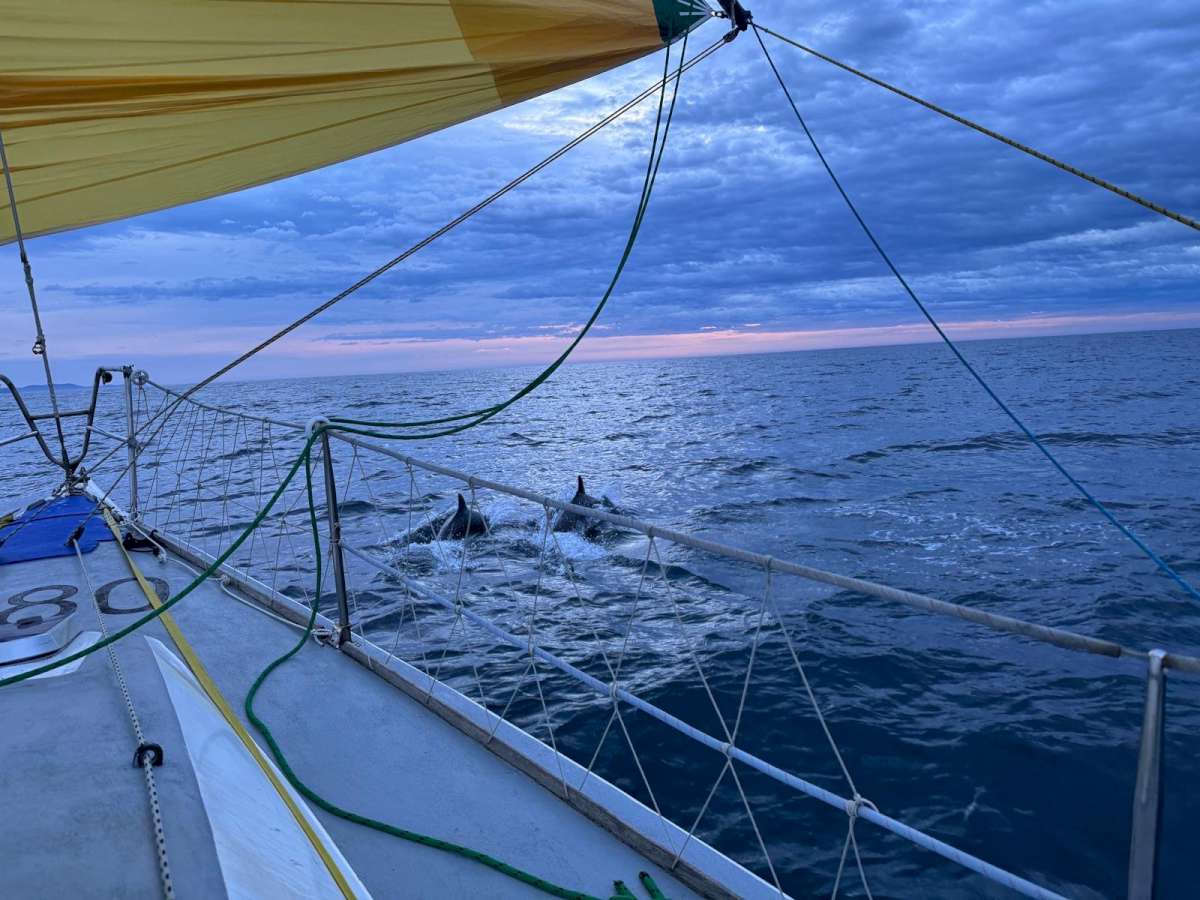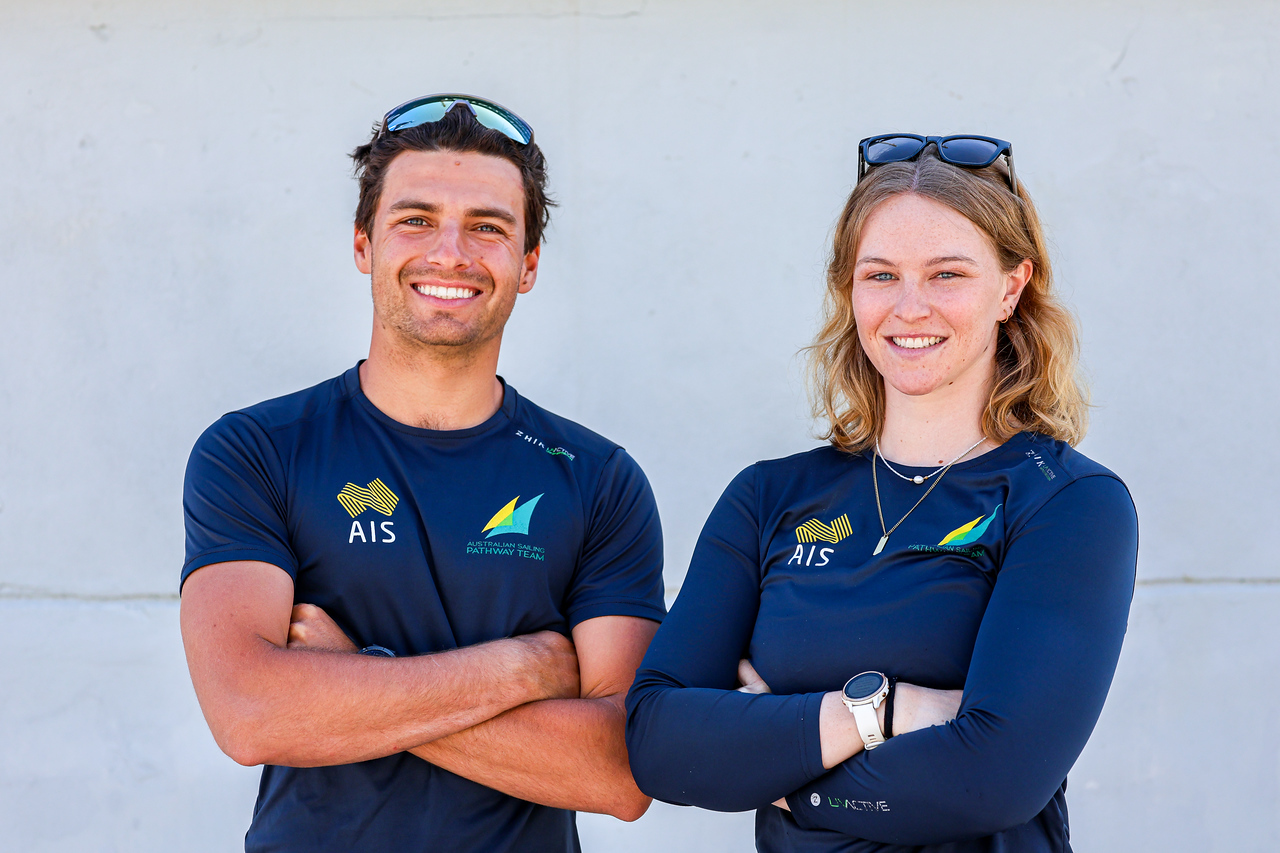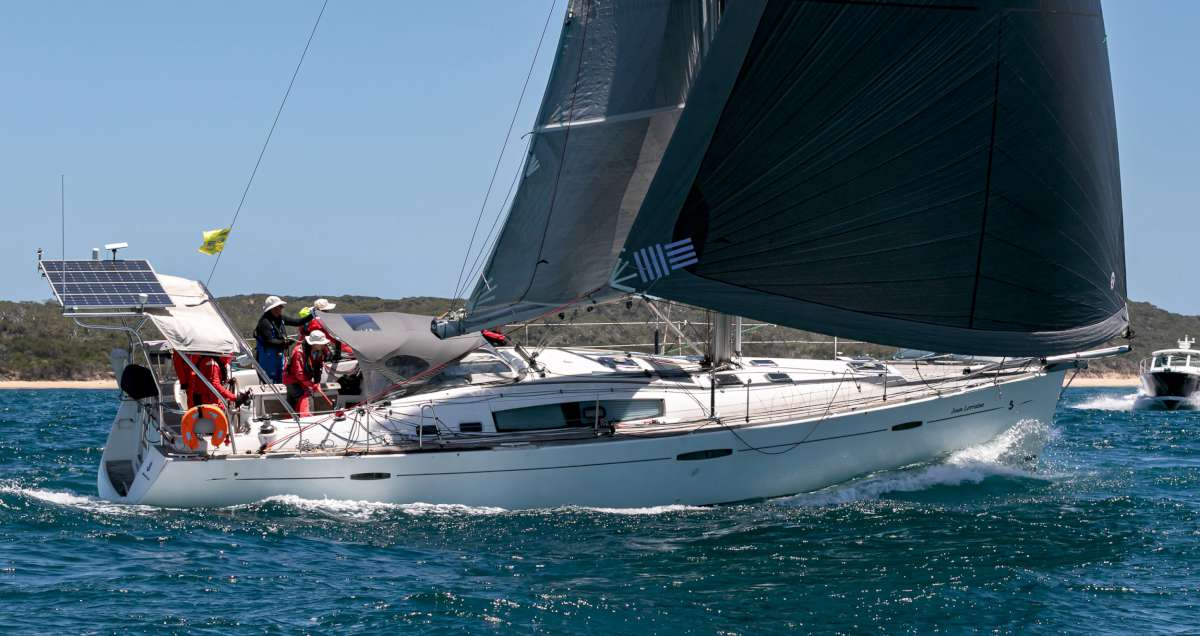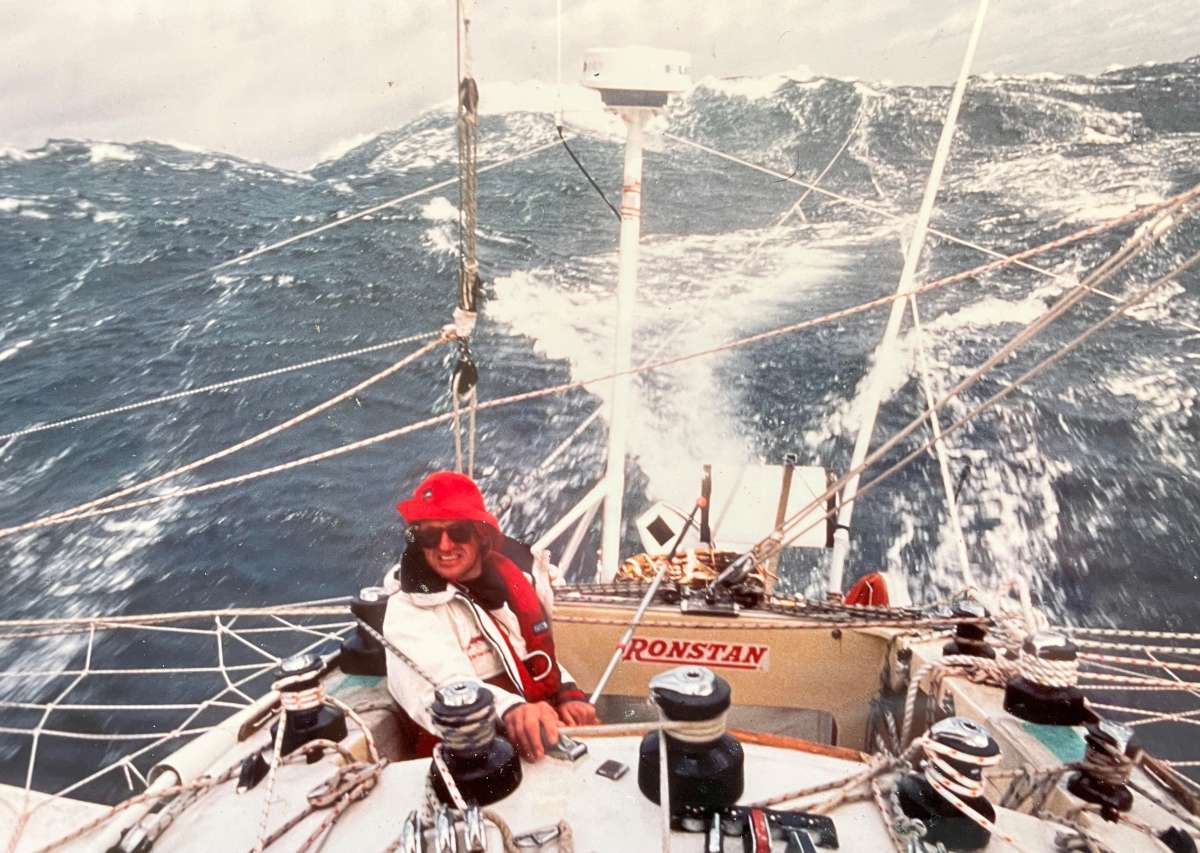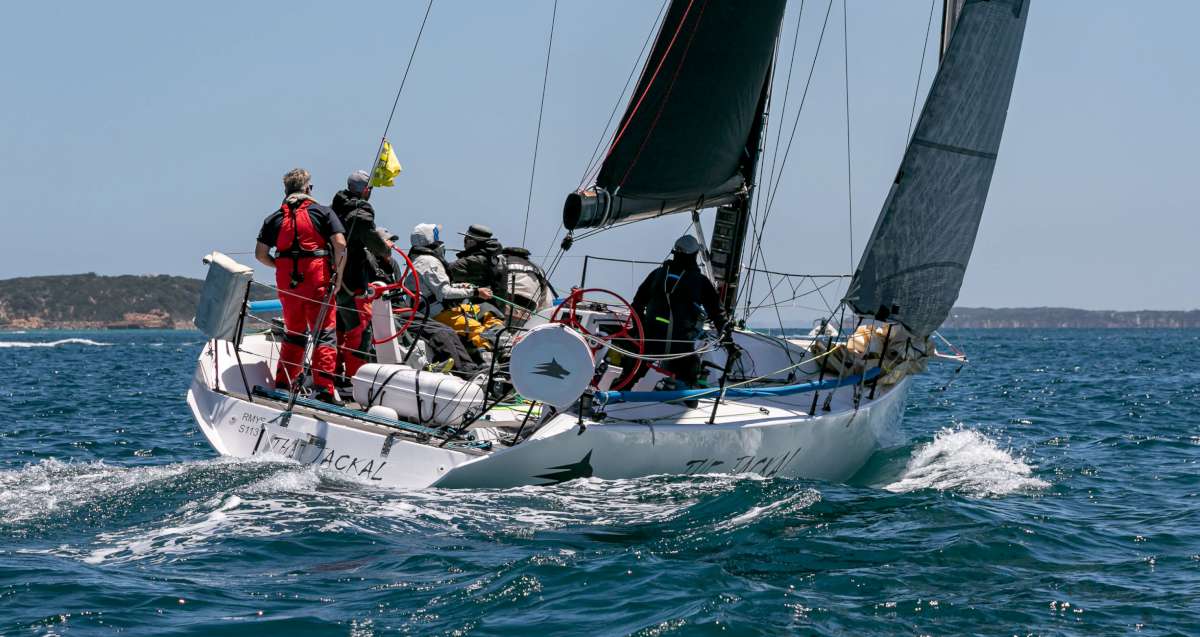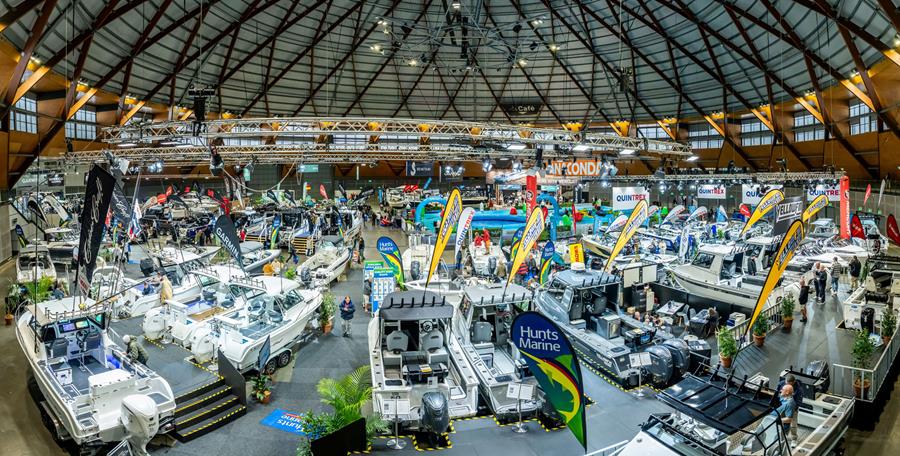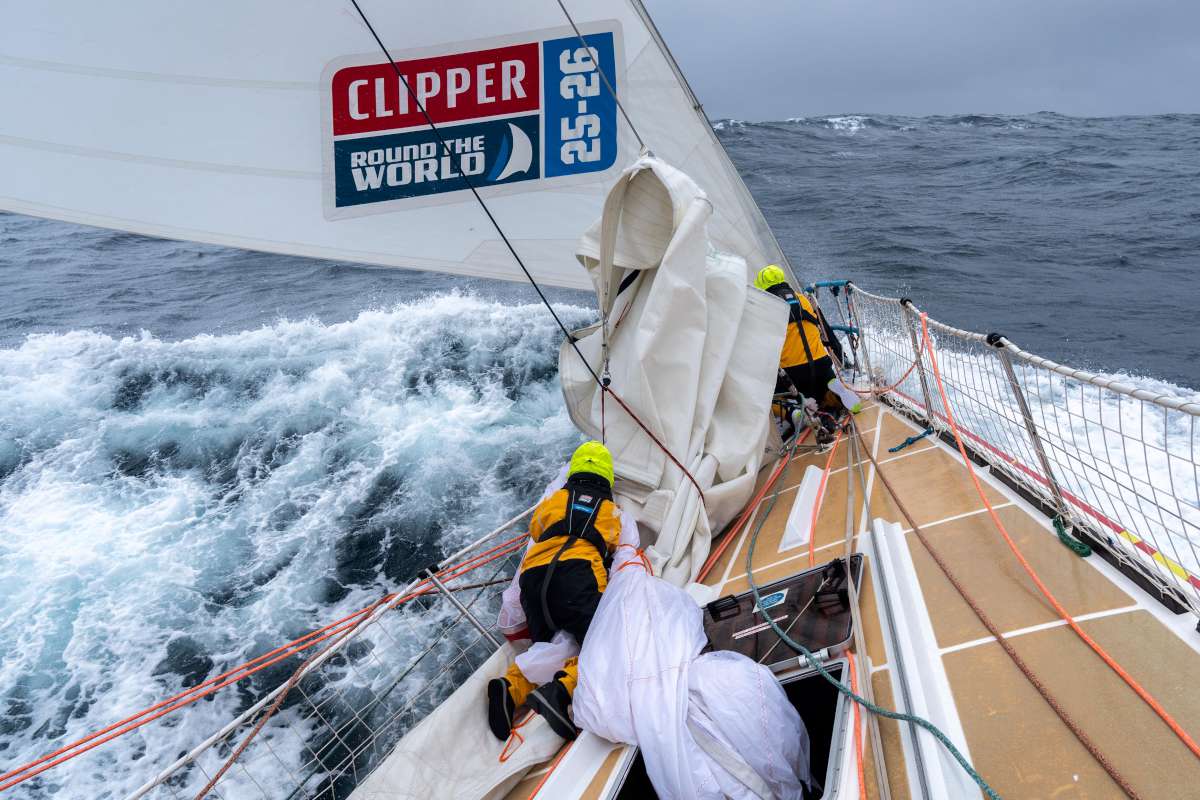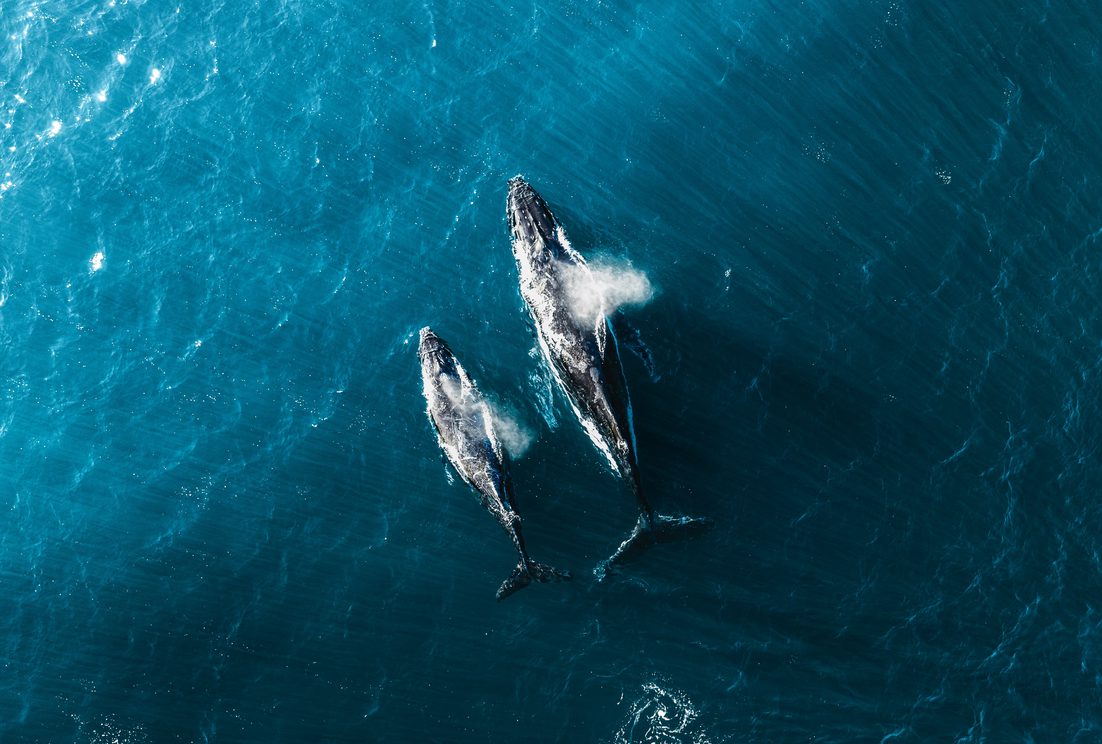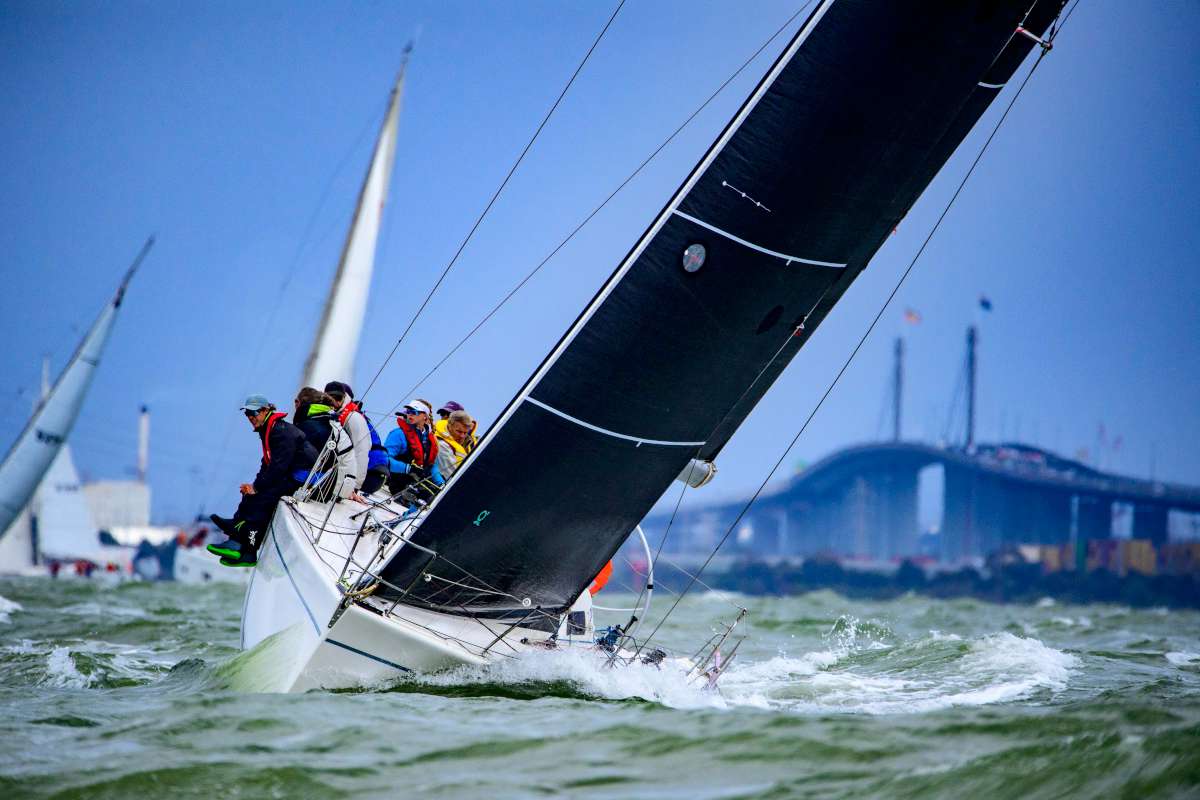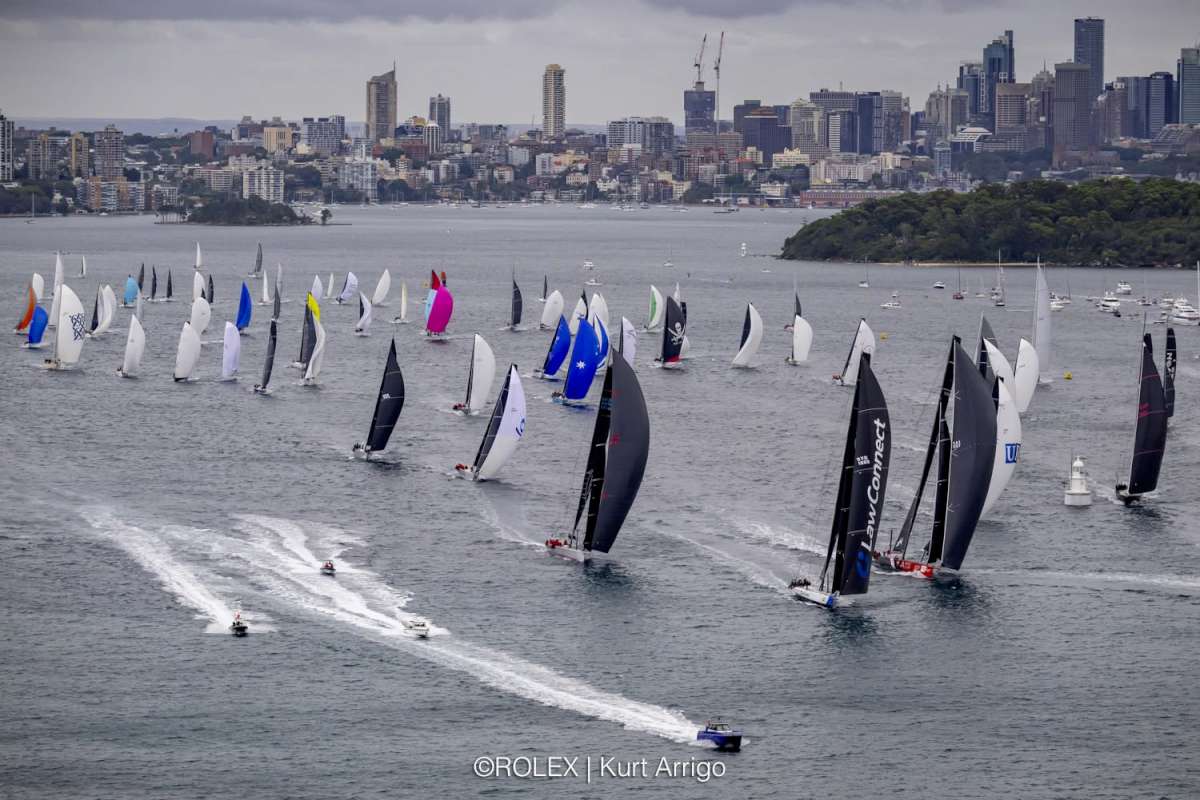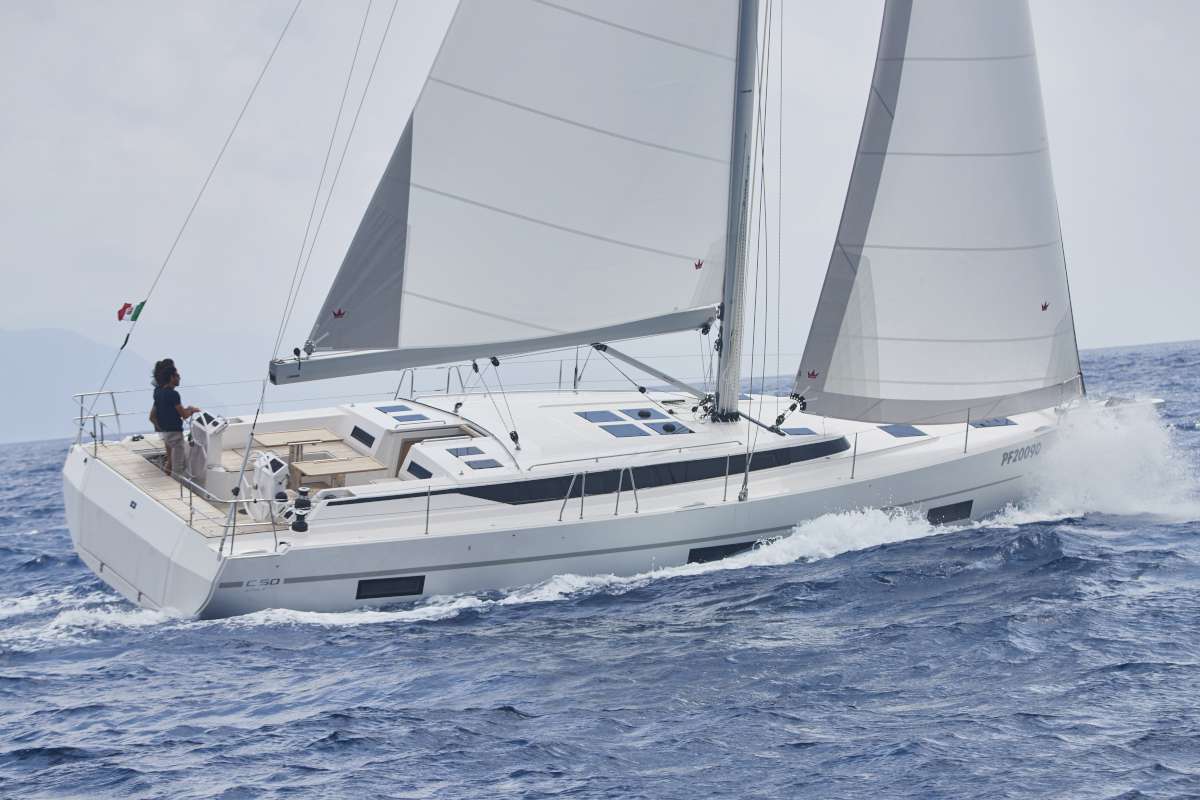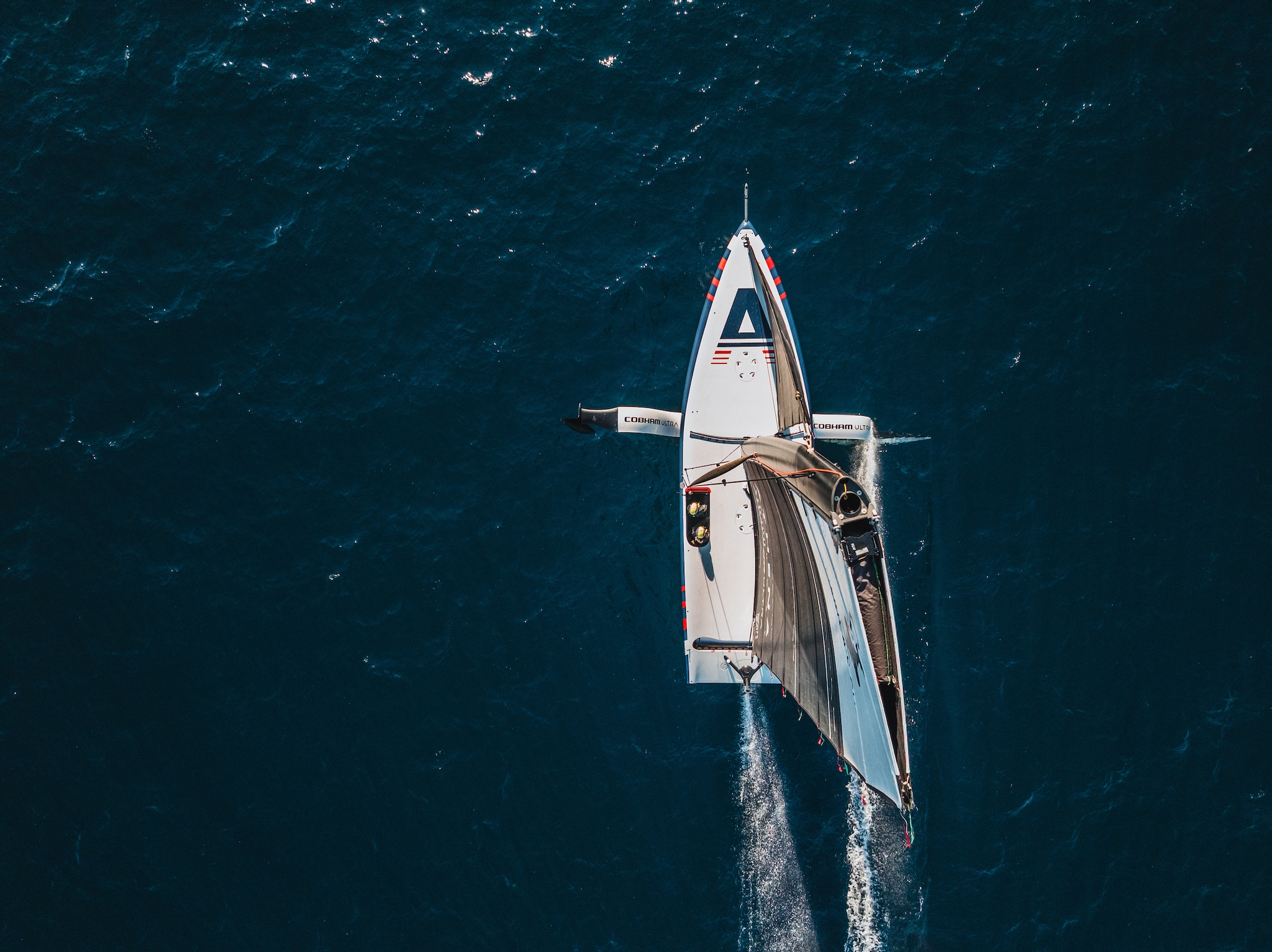Talent alone will not win an Olympic gold medal. Nor, taken in isolation, will intelligence, hard work, a good attitude, family support or great coaches. But put all these elements together and success becomes inevitable.
That's the package that Jason Waterhouse and his equally dynamic cousin, Lisa Darmanin, have engineered since they started playing around in multihulls with their parents from the time they could walk.
ROLLER COASTER
Sailing success came instantly for Waterhouse. He won world titles in two Hobie classes while in his teens and was selected to represent Australia at his first Youth Worlds in 2006 as a 14-year-old where he placed fourth, teamed with Jeremy Roberts. The following year he and Michael McCormick won the bronze medal.
The international partnership with Lisa Darmanin, the daughter of his father's sister, began at the 2008 Youth Worlds in Denmark, where they finished sixth. But the following year they were unstoppable and became Youth World Champions at Buzios in Brazil.
The Olympic Games will be held in Rio de Janeiro in 2016, when Jason will be 24, and it would have been natural for a 17-year-old to dream of returning to Brazil and winning gold for his country on the biggest stage.
But that dream had already been dashed in 2007, when the International Sailing Federation (ISAF), in their infinite wisdom, decided that multihulls had no place in international sailing and replaced the Tornado class with Women's Match Racing for London 2012. All training and support for Jason and other aspiring multihull sailors around the world effectively ceased.
Fortunately, someone could see further ahead than the policy makers. Traks Gordon, coach at Jason's club, Royal Prince Alfred on Pittwater, made the decision to keep a squad of young multihull sailors together. With financial support from club member Tony Walls of Objective Corporation, Traks created the Objective Future Champions Program which allowed Jason and Lisa to continue full-scale training for the following three years.
“Next thing the Nacra 17 mixed multihull is announced, the America's Cup switches to multihulls and the Red Bull Youth America’s Cup is created, all within a few months of each other,” says Gordon. “Suddenly the rest of the world springs into action and we realise we have a significant head start.
“Good things happen to good people and these unfolding events were a reward to Jason and Lisa for following their ambition as opposed to the ambition of others. They were in the right place at the right time because they put themselves there.”
THE GORDON YEARS
Jason credits Traks Gordon for a lot of the success that has come his way and still has the occasional session with him when he needs a bit of boat-handling advice or a mental tune-up. He says Gordon is fantastic with young sailors: “He's great at moulding young brains.”
For his part, Gordon saw the potential in the young Waterhouse from day one.
“I started with Jason in preparation for his second Youth World Championships in Canada when he
was 14-years-old. My initial impression was of a young sailor, full of confidence, bravado and skill. He had
the capacity to win races by a leg and lose races by a leg and my challenge was put some maturity into his thinking so he won races by smaller margins in order to lose races by smaller margins.
“Basically I had to create consistency without destroying his flair for taking risks that need to be taken sometimes to win regattas. It wasn't a simple task! We went backwards before we went significantly forwards.”
Gordon is known on the Northern Beaches for his ability to develop champion people, not just champion sailors.
“Only a quality person can become a quality long-term sailor, not vice versa,” he says. “Hence I put a lot of effort into producing a quality person. Jason has been brought up in a family full of love and support, displaying genuine care for others whilst at the same time remaining tunnel vision focused on his objectives.
“From a young age Jason has had to realise to be extraordinary he was going to have to live a different lifestyle to the ordinary. He has done a remarkable job of maintaining a healthy balanced and fulfilled life surrounded by wonderful support from family, friends and loved ones. Jason was raised in an environment where we didn't go over the top in celebrating the success and we certainly didn't dwell on the failures. He has developed an amazing capacity to withstand hardship and turn it into success.”
EXTREME SUCCESS
It has been a remarkable six months for Waterhouse since he and Lisa won the bronze medal at the ISAF World Championships in Santander, Spain, in September 2014. They followed up with victory at the ISAF World Cup in Melbourne in December and Waterhouse was then invited by double Olympic multihull champion Roman Hagara to helm the Red Bull Extreme 40 at the opening Act in Singapore.
Despite never having been on an Extreme 40, which is a notoriously difficult boat to sail well, Waterhouse became only the second skipper (after current champion Morgan Larsen) to win on debut.
Hagara and fellow double gold medallist Hans-Pieter Steinacher were impressed with Waterhouse when he helmed Objective Australia in the Youth America's Cup – so much so that the 49-year-old Hagara went on the bow in Singapore so Waterhouse could steer.
“Jason Waterhouse is not only talented, he is full of passion and works day and night for victory,” Hagara told me in an email. “He is sailing so well at the moment because it is his priority. Already, before and during the Red Bull Youth America´s Cup I was sure that he is a rising star. Now we gave him the chance to show this
as well on the Extreme 40 and look what he did!”
THE SMART ONE
The major influence on Waterhouse and Darmanin now is their Nacra 17 coach, the Australian Sailing Team's Andrew Landenberger who himself was an Olympic Tornado silver medallist with Mitch Booth in 1986. “Landy” is also effusive in his praise for his young star.
“Jason is like a sponge,” he says. “He's so open to any advice and will absorb anything he can get his hands on.”
For his part, Waterhouse says Landy is quite different to Traks. “I got the best of both worlds. Landy's a great brain to pick on rigs, sails and Olympic level sailing.
And overcoming demons. He's great at that.”
While his Youth America's Cup and Extreme campaigns have been done without Lisa Darmanin, there is no doubt in anyone's mind that theirs is a relationship that proves 'the whole is greater than
the sum of the parts'.
Says Jason: “I'm like my dad. He's organised and sailing comes naturally. But Lisa's like (Aunt) Sally. She's serious and concentrated and works everything out. Lisa's really smart. I'd call her a genius.”
Traks Gordon and Andrew Landenberger agree.
“Lisa Darmanin is the brains and the beauty of Jason’s success,” says Traks. “Her role in providing the professional structure to compliment Jason’s natural
flair cannot be underestimated. I don't think anyone can be credited more for Jason’s success than Lisa. It would be a great disservice to not fully acknowledge this.”
“His cousin is absolutely outstanding,” says Landy. “She's the full package.”
FIGHTING BACK
While the 2016 Rio Olympics remain the prime goal for Waterhouse and Darmanin, and their recent results suggest they are favoured to win the Nacra 17 spot on the team, they face intense competition.
By finishing sixth at the inaugural Nacra 17 Worlds in 2013, they qualified for the Australian Sailing Team. With the next best Australian crew in 22nd place, there didn't look to be too much competition
for the Rio spot. But then along came Bundy.
Double Olympic silver medallist and 14-times world multihull champion Darren Bundock teamed up with Women's Match Racing silver medallist from London 2012, Nina Curtis, and suddenly Waterhouse and Darmanin weren't the top Australian pair.
Perhaps the youngsters had it too easy in the early stages. They got a bit overconfident, perhaps even a bit arrogant and when it all started to go pear-shaped they made a lot of bad calls on the race track.
Lisa Darmanin explained it to me after the Santander Worlds, where they had finished third and had beaten Bundock and Curtis for the first time in a major regatta. “We set a goal last year and set it high, to get on the podium at the Worlds. We didn't start
too well but kept working hard.
“I suppose early on we were a bit spooked, the confidence wasn't there, we weren't backing ourselves. So we stopped being scared, stopped putting people on pedestals and here we are. Silver was an inch away but we'll take third.”
Both Landy and Jason agree on when the transformation took place – at the European A Class Worlds. “We spent a lot of time together at the As,” said Landy. “We became friends there.
“We basically broke it all down. In a straight line on the water there was no-one to touch them. But they weren't winning so it was a tactical thing, a confidence thing.”
“We didn't handle the pressure too well when Bundy came back,” says Jason. “We started playing his game and he was much better at it than we were. I realised 'this isn't working.'
“The light bulb moment came at the A Cat Euros. It was a chance to get away, with no pressure and just do my own thing with no expectations. After that, I started enjoying it again.
“Bundy gave us our start in performance cats, he gave us a Viper to sail,” Waterhouse says. “He's always been a good mate. I guess when he came in we thought 'we've got to race him and we'll learn' but now we're thinking 'we've got to beat him' and hopefully we will.”
ROAD TO RIO
Winning the Olympic spot won't be easy. Bundock and Curtis are formidable opponents. While Waterhouse and Darmanin will fight hard for it, they know they've got a couple more Olympics in them if they do miss out.
“We're trying not to look too far ahead. There's no point. But whichever of us gets the nomination should win a medal,” Waterhouse predicts. “We're pushing each other and we're closing the gap on Billy.”
Billy Besson and Marie Riou (FRA) have won both world championships and are the unbackable favourites for gold at Rio. Waterhouse says the French pair adapted naturally to the fairly difficult Nacra design and have maintained a lead over the rest of the world.
“The curved foils with no elevator on the rudder makes the boat unpredictable but we've tamed the threats, now we're looking for the opportunities. We're working on foiling downwind, which is hard with no elevator to control the ride height, but I think you'll
see foiling at the Olympics.”
Jason's program leading up to Rio is packed, with World Cup and World Championship events in the Nacra, four or five Extreme 40 Acts and the F18 and
A Cat Worlds all on the list.
The Olympic selection events are the Hyeres and Weymouth World Cups, the 2016 Nacra 17 Worlds and the Rio test event in August. Each country can enter only one crew in each class at the test event and the Nacra choice by the AST will be interesting.
Waterhouse shows his maturity, and the effects of working with some of the world's best coaches when he quotes a Victor Kovalenko maxim about the battle between himself and Bundock.
“There are no numbers and no country flags on the sails,” he says. This is Victor's way of telling his charges to sail the whole fleet, not to match race one competitor and allow others past you.
“All I can control is how I sail,” Waterhouse concludes.
On current form, that should be good enough. ✵
– Roger McMillan



